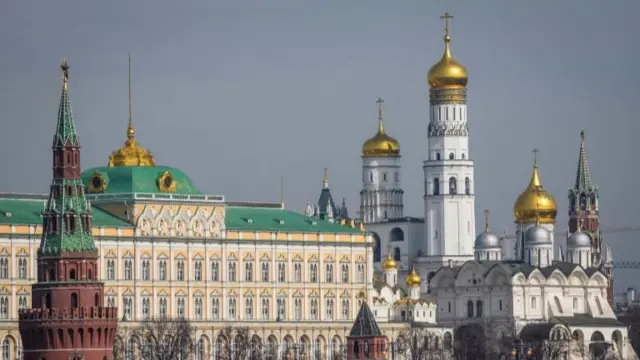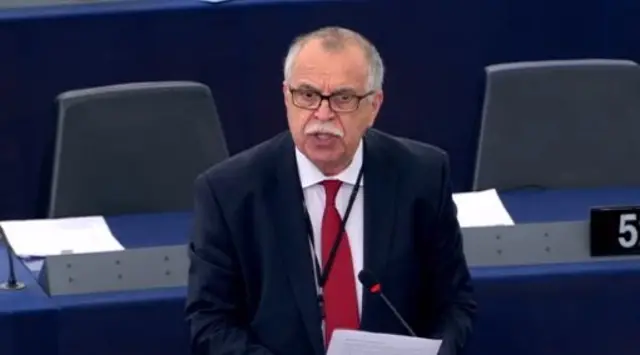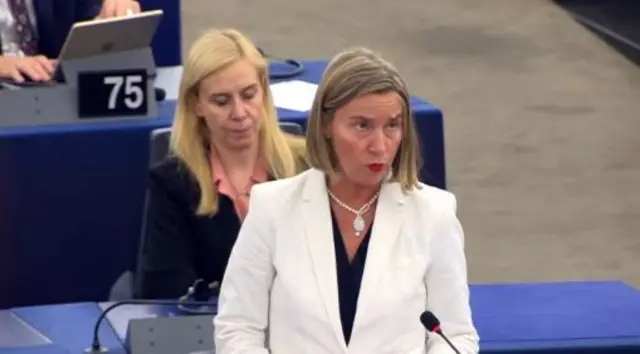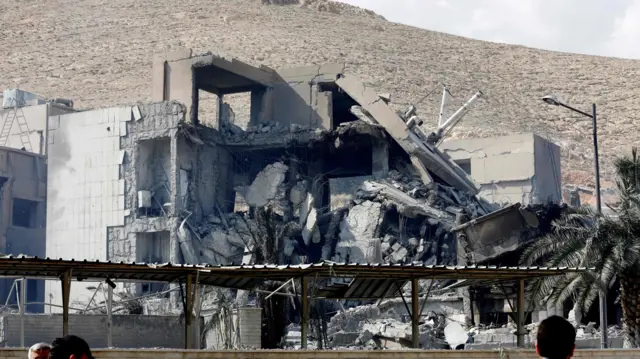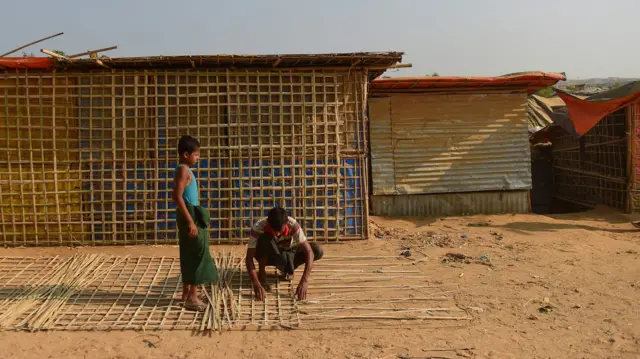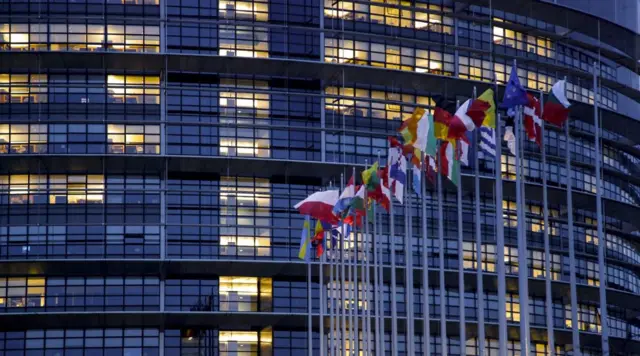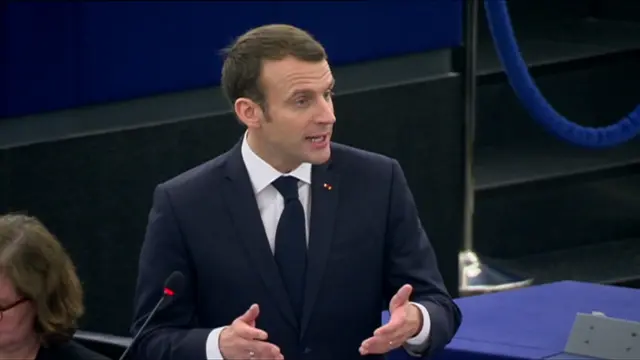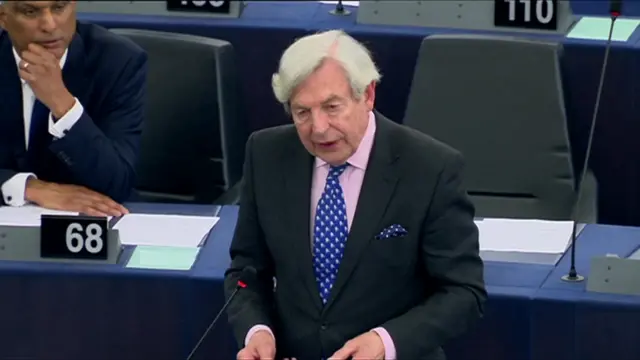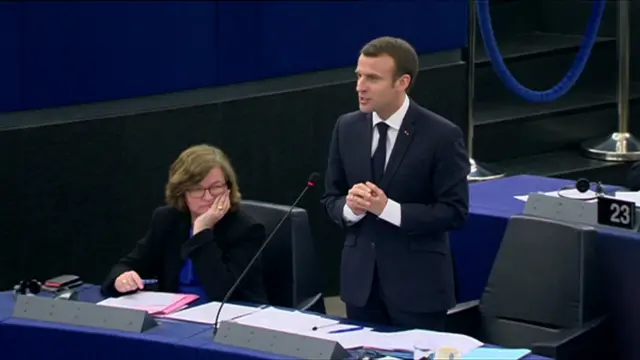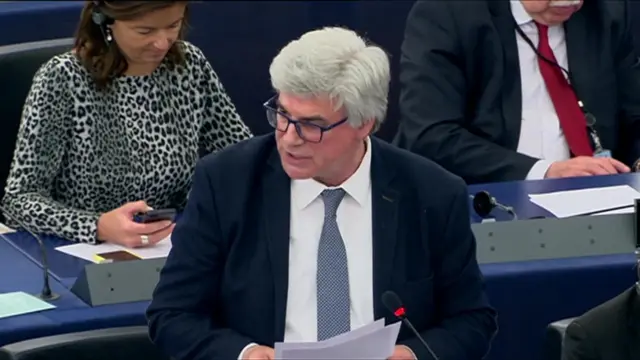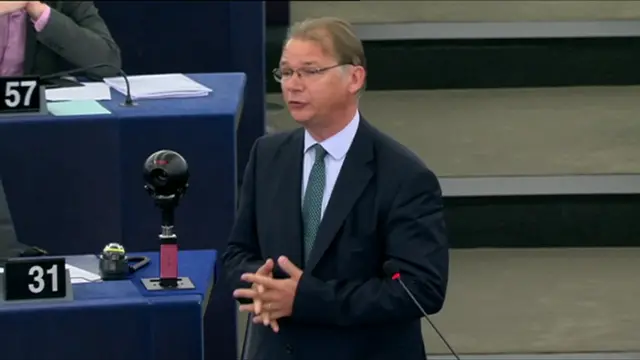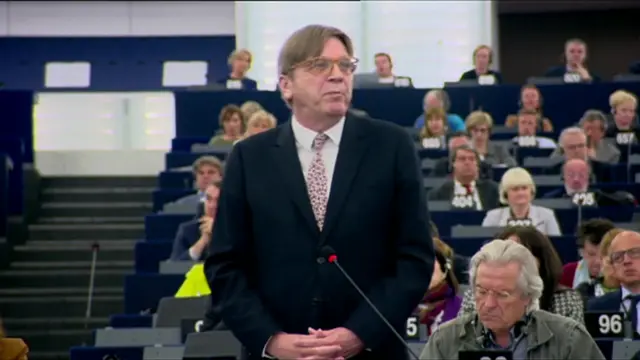Commissioner: EU's 'five principles' still validpublished at 17:42 BST 17 April 2018
Debate on relations with Russia
 European Parliament
European Parliament
Strasbourg
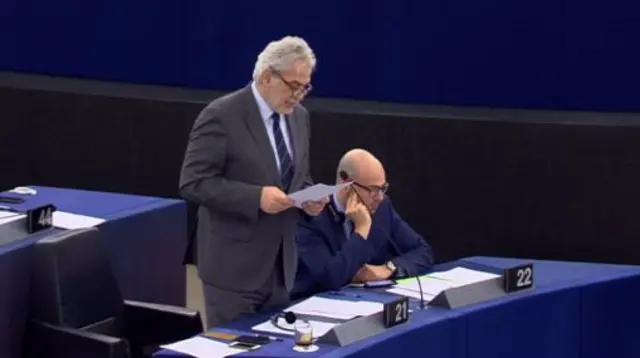 Image source, EBS
Image source, EBSHumanitarian Aid Commissioner Christos Stylianides says the five principles for relations with Russia agreed by EU states in 2016 are still the "most balanced" way to manage the relationship.
These include insisting on the "full implementation" of the Minsk agreements before lifting economic sanctions and pursuing closer relations with ex-Soviet republics.
He insists however that the EU's main vehicle for relations with such countries - the Eastern Partnership - is not about creating "spheres of influence".
He also adds that the EU expressed "unqualified solidarity" with the UK after the Salisbury attacks.
